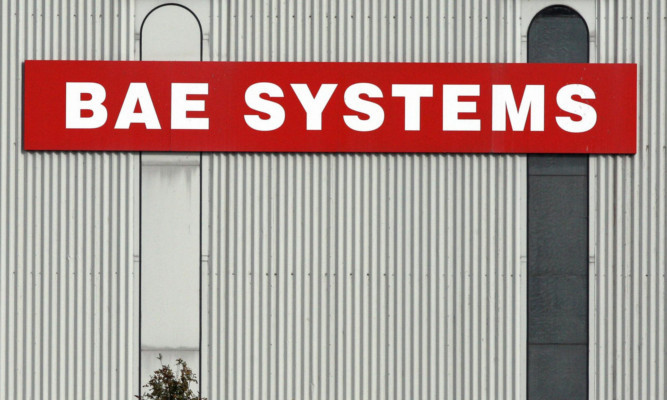Pre-tax profits at BAE Systems dropped by £300 million last year as the defence contractor was hit by budget cuts in the UK and US.
The firm, which has cut 3,600 jobs over the past year and which suffered a major blow when advanced talks over a mega-merger with Airbus manufacturer Eads fell through, saw overall sales decline by 7% from £19.15 billion in 2011 to £17.83bn last year.
The preliminary results also show a fall in pre-tax profits to £1.36bn down from £1.66bn in 2011 a figure which included a £103m loss made on a business disposal.
However, shares in the firm, which operates from eight sites across Scotland, rose 4.129% to 345.90 as BAE confirmed it expected to return to earnings per share growth this year.
The company said it would buy back £1bn of its own shares over the next three years.
BAE was forced to scrap its tie-up with Eads late last year after political wrangling scuppered the two companies’ plans to create the world’s biggest defence and aerospace group, with combined sales of around £60bn.
The firm said: “The discussions involved extensive engagement with many of the group’s government stakeholders, including in the UK, US and Saudi Arabia, and we are grateful for the positive support received.
“The merger would have been an exciting development but no agreement acceptable to all parties could be reached.
“Focus on the underlying business performance was sustained as a priority while the merger discussions were under way.”
The firm said defence budgets in the UK were expected to remain flat for the forseeable future but said its maritime business was enjoying high levels of activity.
It said it expected growth in its submarine division while design work was progressing on the new Type 26 vessels which are set to take over from the Royal Navy’s Type 23 frigates early next decade.
The firm said the main focus remained on the Queen Elizabeth carrier programme which it is working on as a partner in the UK Aircraft Carriers Alliance.
The company has fabricated several sections of the Queen Elizabeth carrier at its base on the Clyde and around 600 workers have now transferred to Babcock’s yard at Rosyth on the Forth where the vessel is being pieced together.
In the military air sector, BAE said deliveries of the Typhoon have continued and said the prospects for future sales remained good.
However, BAE warned that uncertainty was hanging over its operations in the US a market from which it derives more than 40% of total group sales.
The firm said the dual pressures of reduced activity in support of operations in Iraq and Afghanistan and measures to cut US federal budgets were both having an impact.
It said it was making “conservative assumptions” about future US activity and was monitoring its cost base in the States accordingly.
In other international markets, BAE was recently boosted by a £2.5bn order for 12 Typhoons and eight Hawk trainer jets and under the Saudi British Defence Co-operation Programme orders totalling £3.4bn were awarded to the firm to provide support, logistics and training to the Royal Saudi Airforce
